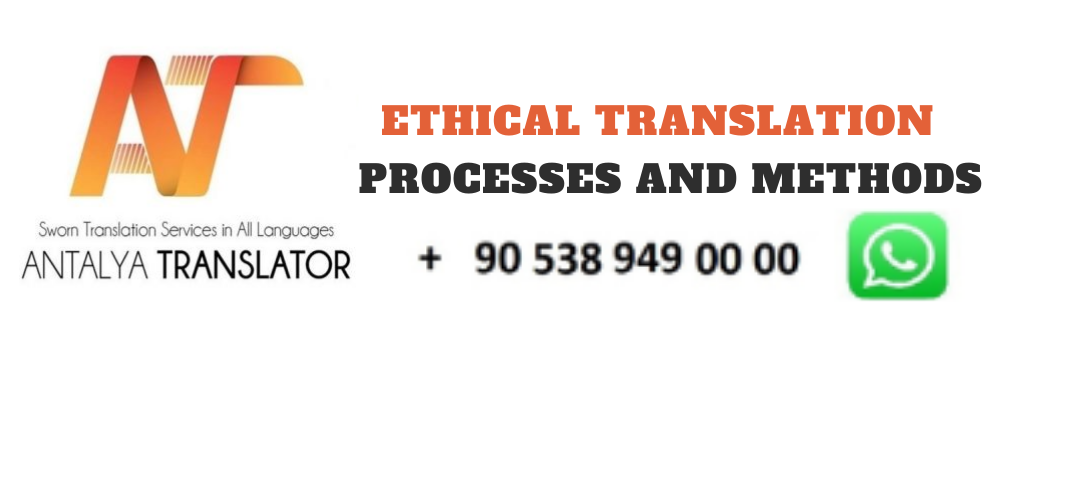
Sworn Interpreting: Assurance of Intercultural Communication
August 14, 2023
Data Security and Privacy Policies in Translation Companies
August 14, 2023Acting in accordance with ethical rules in translation processes ensures that the translation process is carried out in an accurate, honest and respectable manner. The following are the methods that should be taken into consideration in order to translate in accordance with ethical rules:
- Knowledge and Competence: It is essential that a translator not only understands the target language and the source language, but also has sufficient knowledge and competence in the subject matter to be translated.
- Understanding the Text: The interpreter should try to understand the text in depth, not superficially. He should take care to comprehend the text together with its content.
- Preservation of Context: The translator should be careful when transferring the context of the source text into the target language. The meaning of expressions or terms should be preserved in accordance with the general flow of the text.
- Impartiality and Neutrality: The translator should avoid inserting his/her personal views into the translated text and maintain impartiality. The translation should reflect the intent of the original text.
- Cultural Respect: The interpreter should understand and respect the differences between the source and target cultures. Expressions and concepts should be conveyed in a manner appropriate to the target culture.
- Respect for Confidentiality: The interpreter should ensure the confidentiality of the information in the text, especially in confidential content such as commercial, medical or legal texts.
- Honesty: If the translator is incompetent or has insufficient knowledge on the subjects he/she can translate, he/she should honestly express this situation.
- Translation Explanations: In some cases, the interpreter may add notes explaining difficult or complex expressions in the text. This provides a better understanding of the text.
- Continuous Improvement: The translator should endeavour to keep up to date with grammar and translation techniques and to constantly improve himself/herself.
- Proofreading and Quality Control: When the translation is completed, proofreading and quality control procedures should be carried out to identify and correct errors in the text.
It should not be forgotten that translating in accordance with ethical rules reflects the expertise of the translator and ensures accurate and effective communication.

